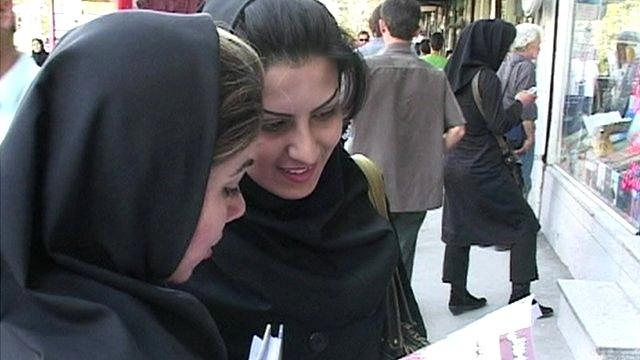Iranian women threw off the hijab - what happened next?
- Published
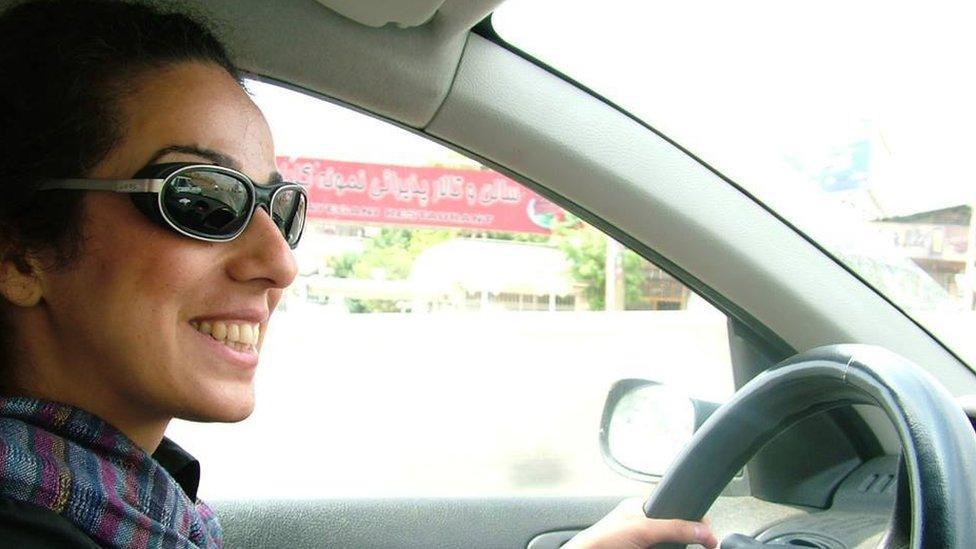
The image of Masih Alinejad that sparked a movement
It is five years since Iranian Masih Alinejad started a movement - since joined by thousands of women - protesting against the compulsory wearing of the hijab, or headscarf, in her country. It spread on social media and led to unprecedented demonstrations in the streets - but is it any closer to achieving its goal?
It began with a seemingly innocuous event: a woman driving on a mountain road in Iran, enjoying the simple freedom of feeling the wind in her hair.
It is a freedom most women take for granted, but one that Iranian women have been denied since the Islamic Revolution of 1979. Masih Alinejad captured this moment in a photograph and five years ago posted it on social media.
She then encouraged other women to also share their secret moments of freedom. As a result she was "bombarded" by pictures from women all over the country.
That was the beginning of my #MyStealthyFreedom, a social media movement opposed to the mandatory headscarf.
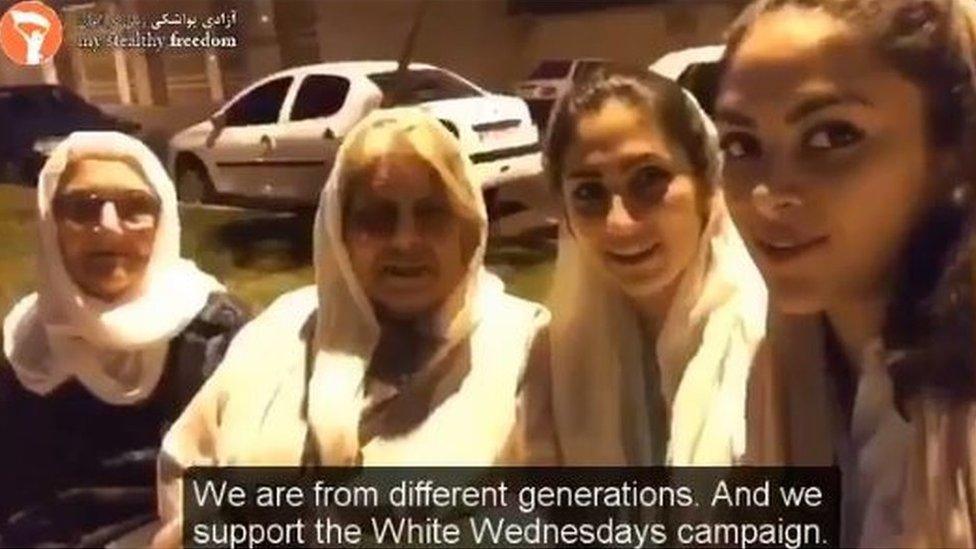
The campaign has cut across generational boundaries
It has since spawned other hashtag movements: from #whitewednesdays, to #girlsofenghelabstreet to #mycameraismyweapon.
Masih has more than 2.5 million followers and has become a force for the Iranian government to reckon with.
Online threats
In her book, The Wind In My Hair, Masih writes about growing up in a strict Muslim family in a small village in northern Iran.
Masih had to cover her hair even around members of her family. She developed a strong feeling of injustice towards women in her culture.
She describes how she "always wanted to give a voice to voiceless people", because she "was always voiceless" when she was in Iran.
Her campaign has not come without a price.
Masih, who has lived in self-imposed exile in the US since 2009, cannot travel safely to Iran for fear of arrest. Her parents are forbidden from leaving the country and her father has stopped speaking to her. Masih says that he has been brainwashed by government agents.
Death threats are a daily occurrence for Masih.
She says she recently got a message on Facebook from a well-known Basiji - a member of a pro-government volunteer militia - that said: "I'm going to butcher you... We are going to chop your body and send it to your family."
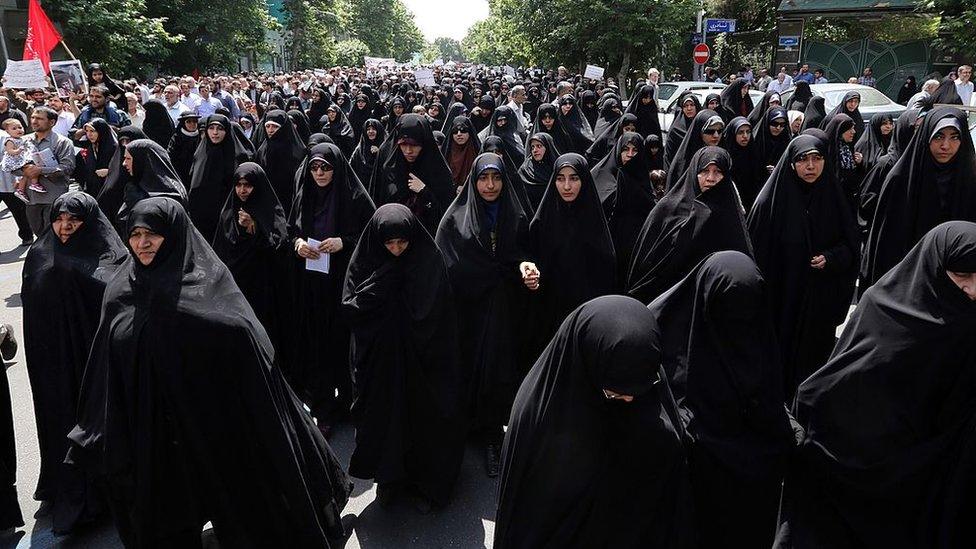
Conservatives want the Iranian authorities to enforce the dress code
I ask her if she regrets starting the movement. "Never," she replies. "For 40 years they have been saying that it is not the right time to talk about women's rights, but now they cannot control women.
"The whole government is talking about the compulsory hijab - that shows the power of those women."
Harsh crackdown
The reaction from the government has been severe.
Since December 2017, more than 35 female protesters have been arrested in the capital Tehran alone. The police have warned that women who participate in demonstrations against the hijab could face up to 10 years in prison.
Iran's hijab protests: The Girls of Revolution Street
At the end of April, a woman was grabbed and slapped by a female morality police officer in Tehran, on account of her loose headscarf. This is not a rare occurrence in Iran.
The difference was that this time was that is was filmed, and shared via Masih Alinejad's Instagram account. It was seen by more than 3 million people and attracted over 30,000 comments.
The incident sparked an international outcry. Even Iran's Vice-President for Women's Affairs, Masoumeh Ebtekar, condemned the violence. "How could this treatment be justified?" she tweeted.
Allow Instagram content?
This article contains content provided by Instagram. We ask for your permission before anything is loaded, as they may be using cookies and other technologies. You may want to read Meta’s Instagram cookie policy, external and privacy policy, external before accepting. To view this content choose ‘accept and continue’.

'Human dignity'
Niloofar (not her real name) was arrested for demonstrating against the mandatory hijab. She says she was held in solitary confinement and subjected to torture and beatings.
An active member of the movement who still lives in Iran, she says that through Masih's campaigns "ordinary people get together to make the government react".
"Social media empowers people to break censorship."
"I always say it's not just about wearing a veil and covering our hair, it's about our dignity as human beings," she adds.
Niloofar is convinced that "during the past year, since the White Wednesdays movement started, women have become much bolder and braver".
It gives Masih great hope to think that she is making a difference in Iran and she believes that real change is already afoot.
35 years of compulsory hijab in Iran
"These women are not waiting for hijab laws to be removed, they are removing them themselves," she says.
According to Shiva Rahbaran, a London-based writer and cultural critic, the Iranian authorities have been unable to stop a growing trend.
"Since the Islamic Revolution, all efforts to quell women's resistance have paradoxically only strengthened and widened it," she says.
"What started out as a protest movement by secular middle-class women, has now spread to the less affluent, religious social strata, which had served as the backbone of the Islamic regime in the past."
The global reach of social media means the issue is not going away.
"Injustice towards women in Iran won't end soon," says Niloofar, "but in future they [will] have to accept our rights when every woman becomes brave enough to demand them."
Masih Alinejad's memoir 'The Wind in My Hair' is BBC Radio 4's Book of the Week.
- Published19 April 2018
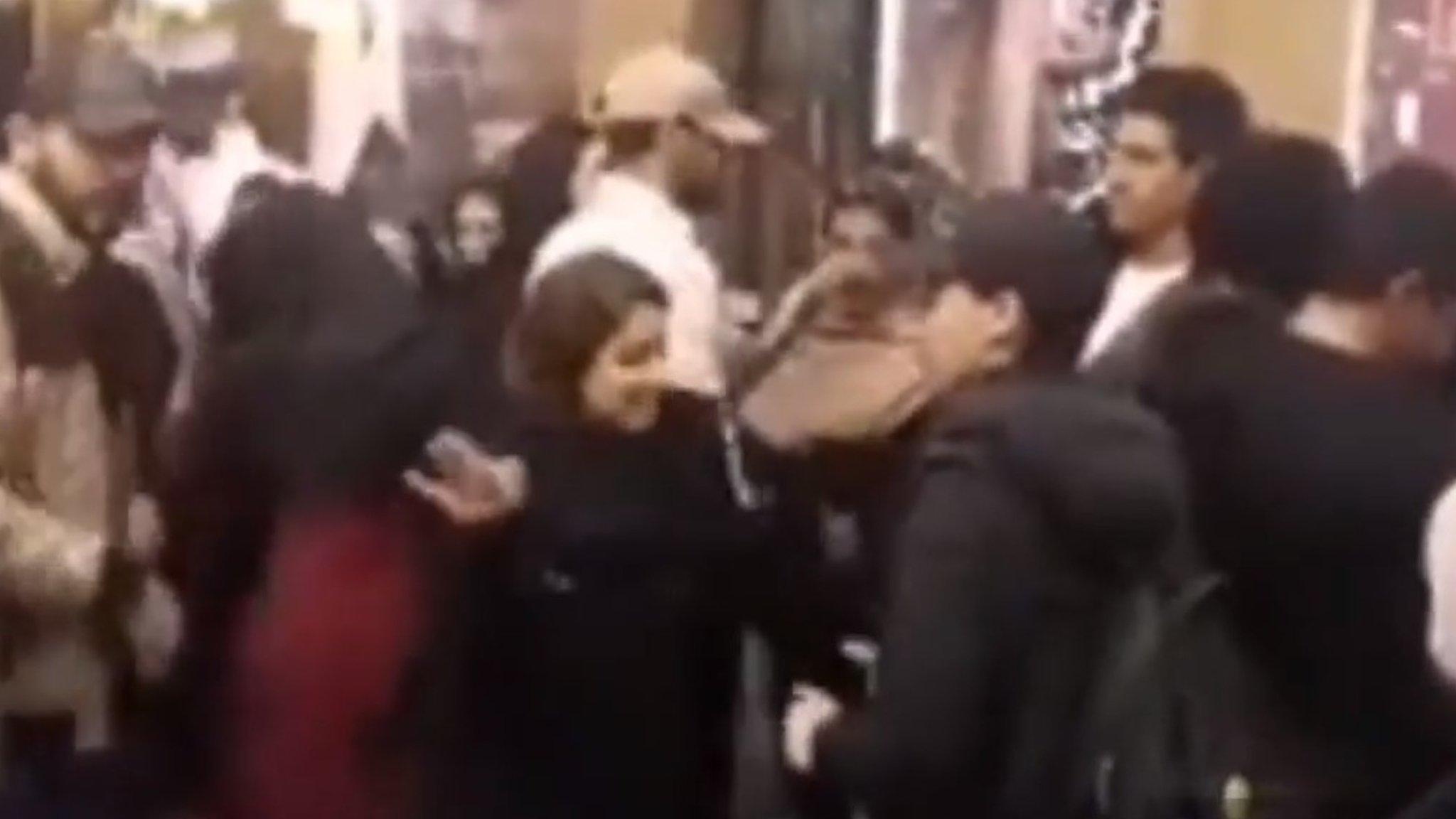
- Published8 March 2018
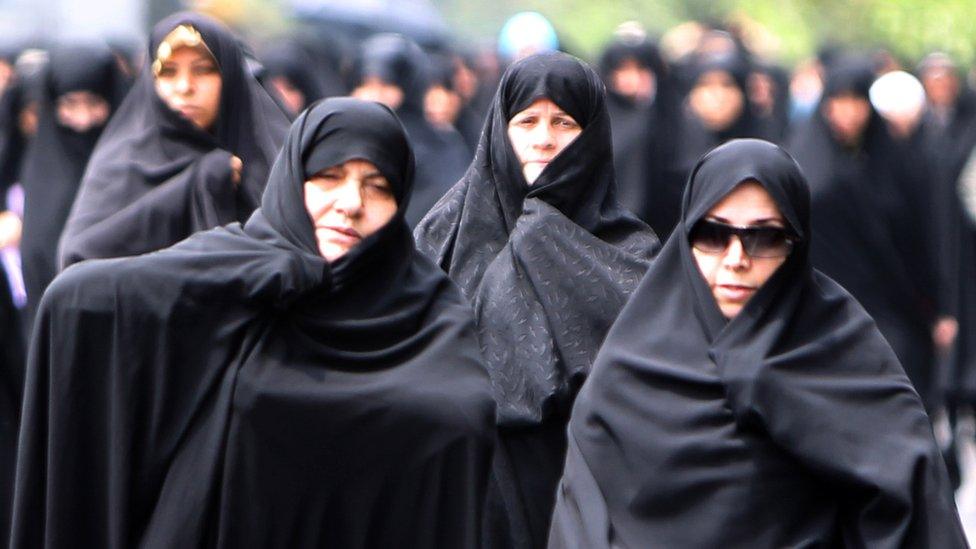
- Published5 February 2018
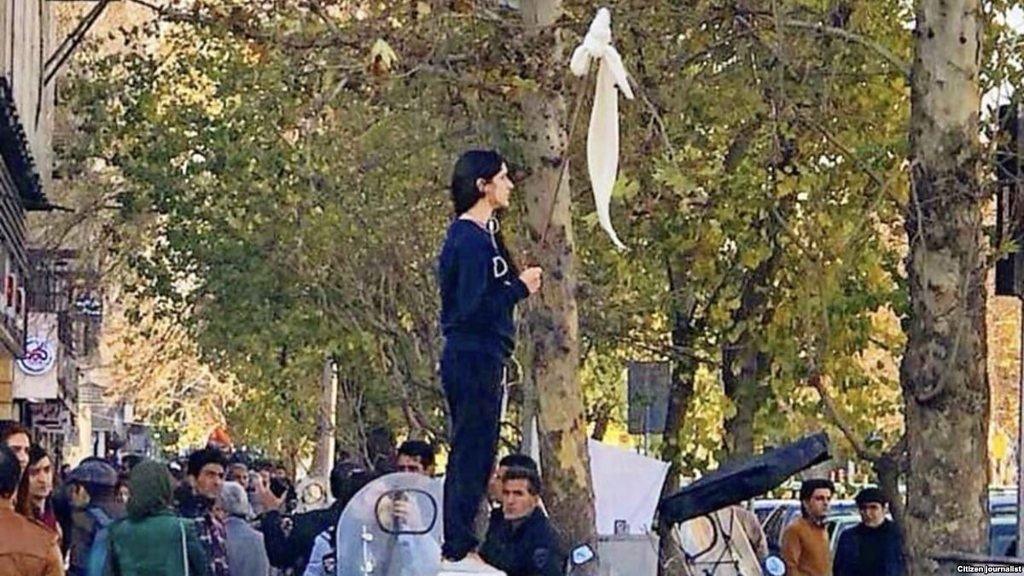
- Published23 January 2018
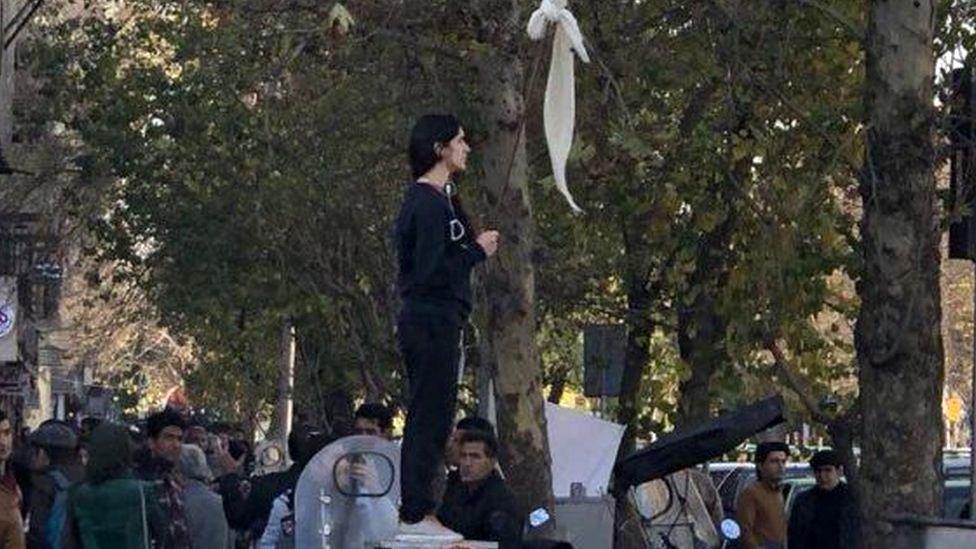
- Published14 June 2017
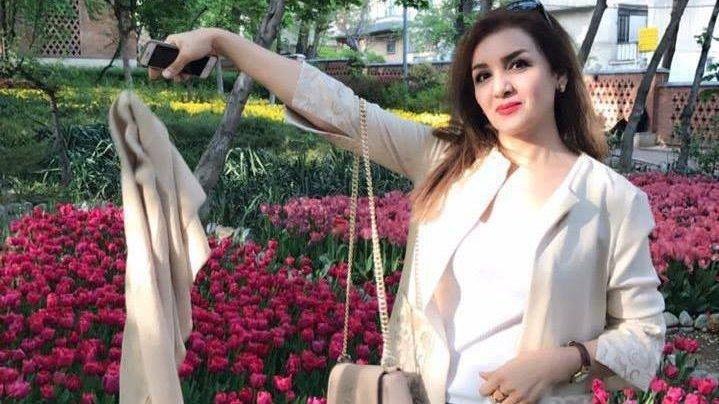
- Published22 May 2014
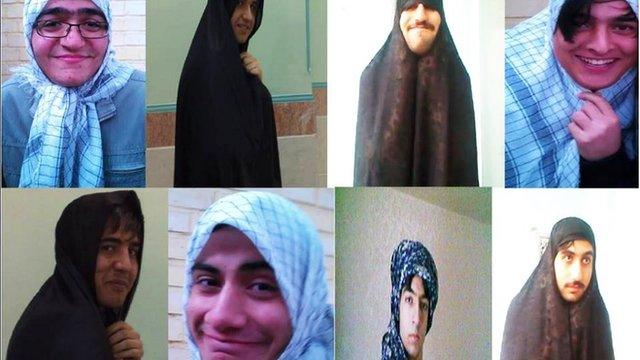
- Published25 April 2014
